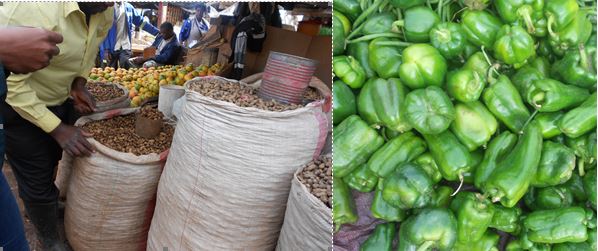|
Getting your Trinity Audio player ready...
|
By Charles Dhewa
The above statement is the main reason why indigenous knowledge should be part of the 4th industrial revolution. Most rural African communities have survived COVID19 so far not only due to their indigenous knowledge but unique sets of values on how to co-exist with nature and with each other. That is also how community-led nutrition is now directing income to farmers and instilling values of a resilient farmer-driven economy.
The pandemic has strengthened the role of rural and urban communities as generators and conveyors of indigenous knowledge that is not found in formal institutions. For instance, mass markets have continued to aggregate food for both urban and rural dwellers already embedded in nutrition so that communities do not continue depending on external food hampers that have not been packed with nutrition in mind.
Learning from mass markets and related ecosystems
Valuable intelligence and business cases can only be generated through profiling markets and related ecosystems through which collective values are shared. That is why organizations that strive to uplift women should not profile women in isolation but as part of ecosystems. When local authorities design markets it is important to realize that Small and Medium Enterprises (SMEs) owned by women or men are part and parcel of the supply chain which has vertical and horizontal synergies with other economic nodes.
In most developing countries, agro and non-agro enterprises are attracted to mass markets such that challenges affecting mass markets also affect women SMEs enterprises, for instance, the absence of ablution facilities at new business operating sites where women are being forced to go by municipalities. To the extent women bring unique values to entrepreneurship, critical questions to be answered include: How can agricultural markets accommodate women enterprises? More than 90% of food catering for SMEs is in the hands of women who are seen moving around due to the absence of space. Tracking the performance of women’s enterprises should start from supply chains.
Women as nutrition knowledge brokers
Recognizing women as nutrition knowledge brokers should start by finding out what type of knowledge they use when packaging or arranging food into small punnets comprising carrots, peas, and butternuts, for instance. In most cases, the women are doing it quietly and no one is tracking that knowledge or expertise. On the other hand, most working conditions favor men and are not designed to accommodate women who are mostly cooking food in the backyards while men do the heavy steelwork in informal industrial sites.
Women also use much more manual labor carrying baskets and walking long distances to the bus stop. Those into clothing have to hire push-carts at the end of the day to move their clothes for storage. Health services should also be closer to markets where more than 60% of SMEs are women.
Continuous financial exclusion
Also very important is exploring financial exclusion issues. In most cases, formal financial institutions raise hopes among traders but fail to adjust their financial extension policies to suit the needs of women traders. Consequently, most women end up at the mercy of loan sharks as no one is promoting their own initiatives like rounds (mukando) – no institution is coming to understand and promote such resilient initiatives.
Women are major innovators in value addition but because there is no support for their growth, men hijack and develop value chains initiated by women and turn them into big companies that are allowed to put peanut butter in supermarkets because they can be on the suppliers’ list while women are walking with their peanut butter selling door to door.
Understanding ecosystems where women operate as well as synergies between rural and urban women is fundamental before introducing interventions targeting women. As rural women dry vegetables, they are thinking of urban women who can prepare meals or and trade dried vegetables. As they produce pumpkins, they have their urban peers in mind who know the nutritional value of the crop being produced.
Need for recognition
Women’s values have enabled most of them to educate their children through vending and contribute massively to socio-economic development but they are not being recognized or being given PhDs for their valuable contribution. Women’s knowledge has sustained mass markets and SMEs which are a critical component of most economies but their knowledge is being ignored to extinction because policymakers think formal institutions like universities are the only sources of knowledge and progressive values.
As African countries strive to build resilient economies and supply chains, it is critical to recognize women as the best promoters of indigenous knowledge, values, and food systems. Special zones for indigenous foods and values should be established together with the promotion of indigenous value addition technologies. African mass markets have existed for years because they have an open knowledge-sharing system. If prices go up, market actors react accordingly because knowledge is a public good in this ecosystem. Collective values dictate that you cannot take advantage of other traders and hope to survive in the market for long. This has established an ecosystem of actors who understand the value of collective entrepreneurship and co-existence.






